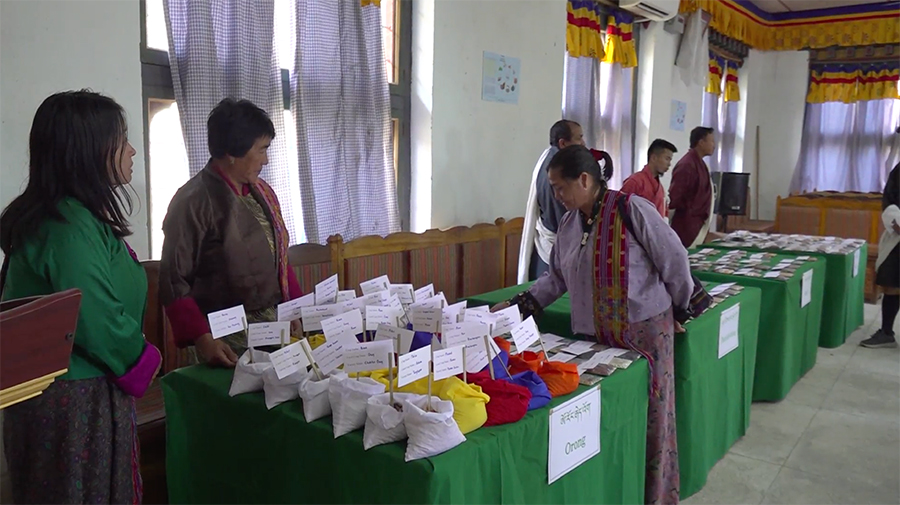 For generations, farmers have preserved and passed down indigenous seeds, ensuring food security and resilience. However, these seeds are rapidly disappearing, replaced by hybrid varieties and changing farming practices. To promote a culture of seed-saving, a seed fair was organised for the first time in Samdrup Jongkhar.
For generations, farmers have preserved and passed down indigenous seeds, ensuring food security and resilience. However, these seeds are rapidly disappearing, replaced by hybrid varieties and changing farming practices. To promote a culture of seed-saving, a seed fair was organised for the first time in Samdrup Jongkhar.
 Farmers from eight gewogs from Samdrup Jongkhar showcased more than 100 seed varieties, including drought-resistant maize to highly nutritious millet.
Farmers from eight gewogs from Samdrup Jongkhar showcased more than 100 seed varieties, including drought-resistant maize to highly nutritious millet.
However, these crops are rarely grown now. With the changing farming practices and increasing reliance on commercial seeds, many farmers have stopped the tradition of saving seeds.
To address this, the event featured training sessions on seed storage and preservation.
“We are helping them with the establishment of community seed banks and seed saving at the household level, with the period and also the climate change, our traditional seeds are resilient to climate change and adaptable to the local climatic conditions, unlike the hybrid seeds,” said Cheku Dorji, Programme Director, Samdrup Jongkhar Initiative.
For many farmers at the fair, the event was more than just a gathering, it was a wake-up call. The gradual loss of traditional seeds and the growing dependence on commercial varieties have raised concerns about food security and sustainability.
“We don’t grow indigenous seeds on a commercial scale. However, to preserve traditional crops, we cultivate cereals and beans. If we save them now, future generations can benefit,” said Sonam Dorji, a farmer from Wangphu Gewog.
“Producing our seeds will be beneficial. Relying on other seeds is not sustainable in the long run. If something goes wrong, it could create serious challenges for us,” said Sonam Chenzom, a farmer from Orong Gewog.
“Local seeds are better than hybrid seeds because they must be cultivated annually to produce new seeds,” said Ravi Lal Adhikari, a farmer from Phuentshothang Gewog.
The programme was organised by the Samdrup Jongkhar Initiative in collaboration with the National Biodiversity Centre, Bhutan Foundation, and the Dzongkhag Agriculture Sector.
As climate change accelerates, indigenous seeds are more valuable than ever. However, if farmers continue to abandon them, the country risks losing not only its biodiversity but also its ability to withstand climate shocks.
Events like this offer hope, but the real challenge is making traditional seed-saving a way of life once again.
Kinley Wangchuk, Samdrup Jongkhar
Edited by Tandin Phuntsho








